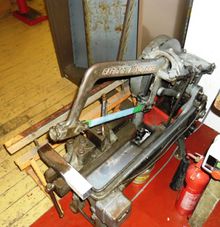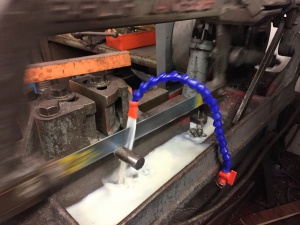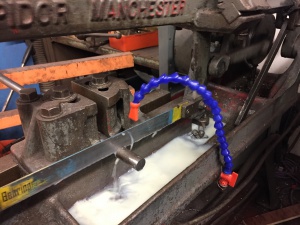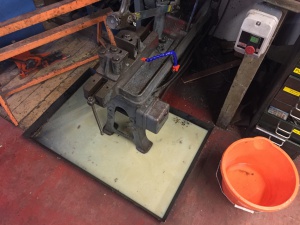Donkey Saw: Difference between revisions
mNo edit summary |
infobox |
||
| Line 1: | Line 1: | ||
{{Tool | |||
|image=File:Nottinghack Tools Rapidor donkey saw.jpg | |||
|manufacturer=Rapidor | |||
|model= | |||
|obtained= | |||
|obtaineddate= | |||
|location=Metalworking Area | |||
|team=Metalworking | |||
|induction=No | |||
|defunct= | |||
|defunctdate= | |||
}} | |||
This donkey saw/ power hacksaw can be used to cut through thick sections of metal that would otherwise be impractical to cut by hand. | |||
==Cutting fluid nozzle placement== | ==Cutting fluid nozzle placement== | ||
Revision as of 12:45, 22 February 2019
| Donkey Saw | |
|---|---|
 | |
| Manufacturer | Rapidor |
| Location | Metalworking Area |
| Team | Metalworking |
| Induction Required | No |
| Tools: all pages • list • Power Tools • Broken tools {{}} | |
This donkey saw/ power hacksaw can be used to cut through thick sections of metal that would otherwise be impractical to cut by hand.
Cutting fluid nozzle placement
The correct placement for the cutting fluid nozzle is pointing down over the blade about 1-2 inch behind the work being cut.
The idea is to cool the blade and have it pull the fluid into the cut on the work


Fluid should not be splashing into the drip tray in large quantity!

When too much coolant gets spilled into the drip tray, it can be topped up with a small quantity of fresh water (add just sufficient to re-start the flow).
When the mix gets too diluted, it can be topped up with a strong mix (to allow ongoing dilution) of cutting fluid and water as part of the general maintenance process by the tools team.